ABA partners with law schools to advance new approaches to policing and public safety

“I wanted to be the great criminal attorney that everybody always needs,” says Kendall Anderson, a fellow in the third class of the Legal Education Police Practices Consortium.
When Kendall Anderson was growing up in Cleveland, one of his cousins was accused of killing his landlord. Anderson, who was young at the time, heard adults in his family talk about finding someone to help defend his cousin. They were eventually able to hire a private attorney, and his cousin was released after another man confessed to the murder. The experience left a lasting impression on Anderson.
“I wanted to be the great criminal attorney that everybody always needs,” says Anderson, a 3L at the Syracuse University College of Law. “I wanted to do constitutional law for a bit, but otherwise, I haven’t really wavered.”
Last year, Anderson heard about the Legal Education Police Practices Consortium—a collaboration between law schools and the ABA that is examining and addressing legal issues in policing and public safety—and knew that it would help prepare him for his career. As a recently named fellow of the consortium, he plans to collect local data on police stops that involve physical contact or altercations. This could include roadside sobriety tests and pat downs, he says, as well as further escalations.
“I’ll try to piece together why things escalate in my area, if they do get out of hand,” Anderson says. “And if they don’t, I’ll try to get insight from officers as to the training they do that is preparing and equipping them to be able to handle those situations better.”
The deans of ABA-accredited law schools created the consortium after the murder of George Floyd and other Black Americans by police in 2020. Housed within the Criminal Justice Section, it aims to develop model police practices and initiate projects that support effective policing, promote racial equity in the criminal justice system, and eliminate racially motivated law enforcement tactics. So far, 60 law schools have joined the consortium.
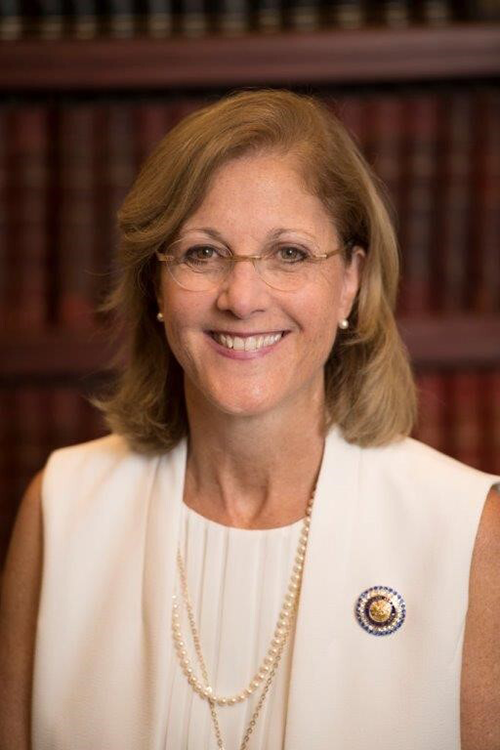 Madeleine Landrieu chairs the Deans Advisory Committee of the Legal Education Police Practices Consortium.
Madeleine Landrieu chairs the Deans Advisory Committee of the Legal Education Police Practices Consortium.Madeleine Landrieu, the dean of Loyola University New Orleans College of Law, chairs the consortium’s Deans Advisory Committee. She has been involved in the consortium since its inception and says it offers law schools a valuable opportunity to harness their energy and resources to help reimagine public safety in the United States.
“There are great efforts going on around the country that are making a difference or have the potential to make a difference,” Landrieu says. “The role of the consortium is to connect people to these and replicate them where they would also work because there are 18,000 police departments in America. They all operate differently, they all need different kinds of support, and there is a law school close to all of them.
“So can law schools lend their resources of time, talent and treasure—and not just to police departments but to community groups, community partners, legislators, council members and other elected officials who are seeking to reshape what public safety should look like?”
Third class of fellows joins consortium
As part of their work in the Legal Education Police Practices Consortium, law schools offer semesterlong fellowships to students such as Anderson who are interested in studying policing and other criminal justice issues. In January, he joined 40 law students from 28 schools in the spring fellowship class.
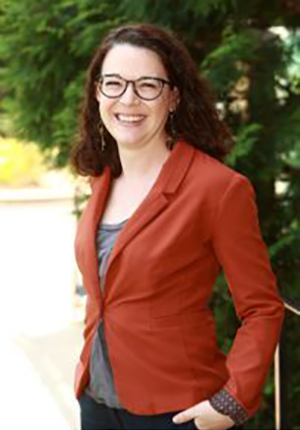 Jessalyn Walker is the director of the Legal Education Police Practices Consortium.
Jessalyn Walker is the director of the Legal Education Police Practices Consortium.To date, the consortium has had a total of 105 fellows, according to Jessalyn Walker, its director. She explains that fellows are assigned faculty advisers at their law schools and asked to help collect and update publicly available information related to state, local and campus police agencies, as well as sheriff’s departments, highway patrol, state’s attorneys, government officials and civil rights and legal aid organizations. This information will be added to the consortium’s online policing database.
Fellows are also encouraged to engage with local police departments or civil rights or legal aid organizations that focus on policing issues in their community. Walker says their projects could involve helping police departments aggregate calls for service and identify demographic data or researching how departments collaborate with mental or behavioral health agencies and whether they receive crisis intervention training.
Fellows could additionally work with their faculty advisers to determine whether shared learning opportunities exist for police departments and law students, Walker adds. And if requested, faculty advisers could assist departments by reviewing their legal training curriculum.
“It’s important that we build bridges for conversation between law schools and students and with their local departments, so they have a better understanding of the challenges that both experience and are able to communicate more effectively around identifying what a shared theory of change can look like for themselves, as well as for the communities in which they sit,” Walker says.
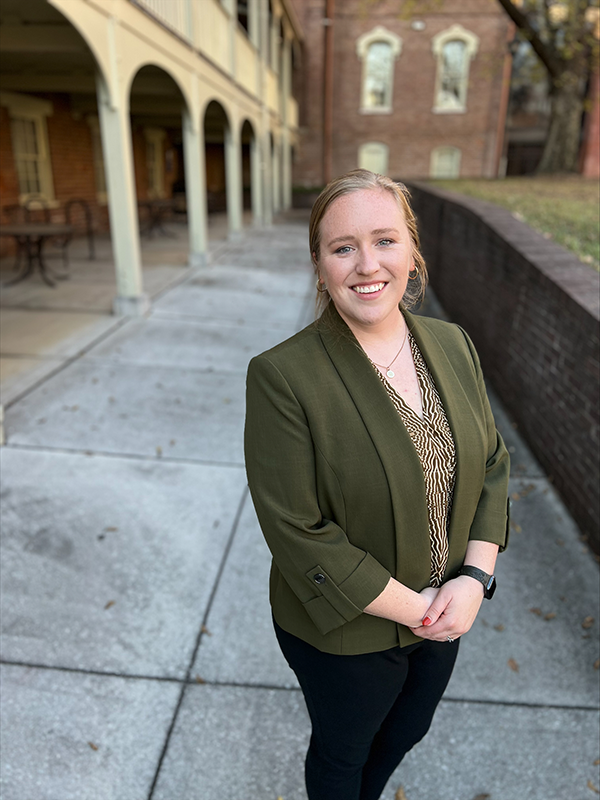 Kimberly Trotter is an officer with the Knox County Sheriff’s Office in Tennessee.
Kimberly Trotter is an officer with the Knox County Sheriff’s Office in Tennessee.Kimberly Trotter brings a unique perspective to the consortium as an officer with the Knox County Sheriff’s Office in Tennessee and a 3L at the Lincoln Memorial University Duncan School of Law in Knoxville, Tennessee. In her 12 years in law enforcement, she has seen the divide between police officers and attorneys and decided to become a fellow to help shift perceptions in both fields.
“I want to help create an open conversation between law enforcement and law students and other attorneys,” says Trotter, who hopes to work as an in-house counsel for a law enforcement agency. “I really hope to show that we’re on the same team, and we’re working together toward the same goals.”
Trotter also hopes to conduct more research related to violent calls and officer retention during her semester as a fellow with the consortium.
Consortium continues to support law schools and their students
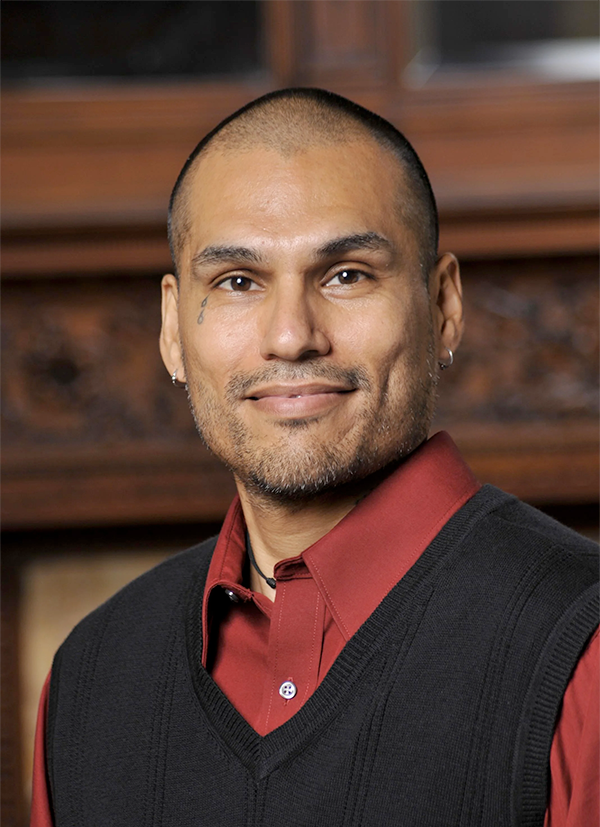 SpearIt has a PhD in religious studies, as well as a JD. He is on the ABA Criminal Justice Section’s Corrections Committee.
SpearIt has a PhD in religious studies, as well as a JD. He is on the ABA Criminal Justice Section’s Corrections Committee.SpearIt, a professor at the University of Pittsburgh School of Law who teaches criminal justice classes, has worked as a faculty adviser to multiple fellows in the Legal Education Police Practices Consortium. He says the consortium provides students with hands-on experience and access to research that they wouldn’t get anywhere else on campus.
The information that his fellows present has also enhanced his experience as a professor, SpearIt adds.
“When you teach criminal procedure, criminal law, people assign to you a certain level of expertise, but when I see the data the fellows collect about some of these practices, I have learned a whole lot of stuff that I never would,” says SpearIt, a member of the ABA Criminal Justice Section’s Corrections Committee. “There is just no way to get to some of this information in a casebook or in a law review article. It’s very cutting edge in that way.”
In addition to their research projects, consortium fellows meet weekly with Walker and attend webinars featuring speakers from nonprofit organizations, law schools and law enforcement agencies sharing varying perspectives on policing and public safety. Walker also supports faculty advisers who are working on projects, such as teaching a police practices course and adapting a law of the police casebook for members of the consortium.
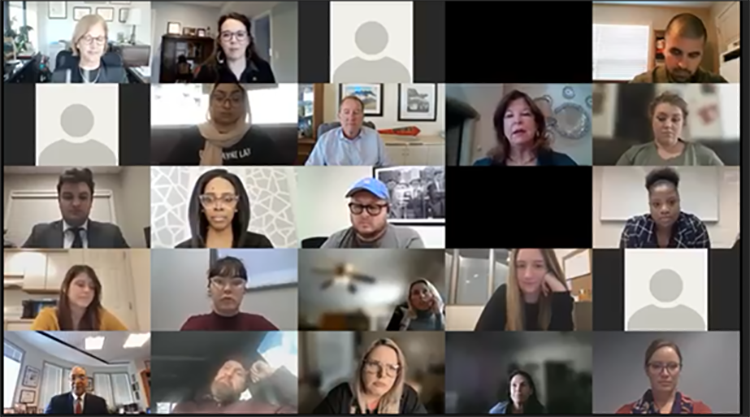 The 2022 class of the Legal Education Police Practices Consortium was greeted by former ABA President Patricia Lee Refo.
The 2022 class of the Legal Education Police Practices Consortium was greeted by former ABA President Patricia Lee Refo.
The work of the consortium remains ongoing, particularly as Black Americans continue to die at the hands of police, Walker says. In recent weeks, the case of Tyre Nichols, a 29-year-old Black man who was beaten to death by Memphis, Tennessee, police officers, has captured the nation’s attention.
“The consortium and the network of scholars within is well positioned to research and elevate promising approaches related to policing and public safety in a proactive manner in the hopes of preventing the loss of additional life,” Walker says.
For more information, visit the Legal Education Police Practices Consortium’s website.



